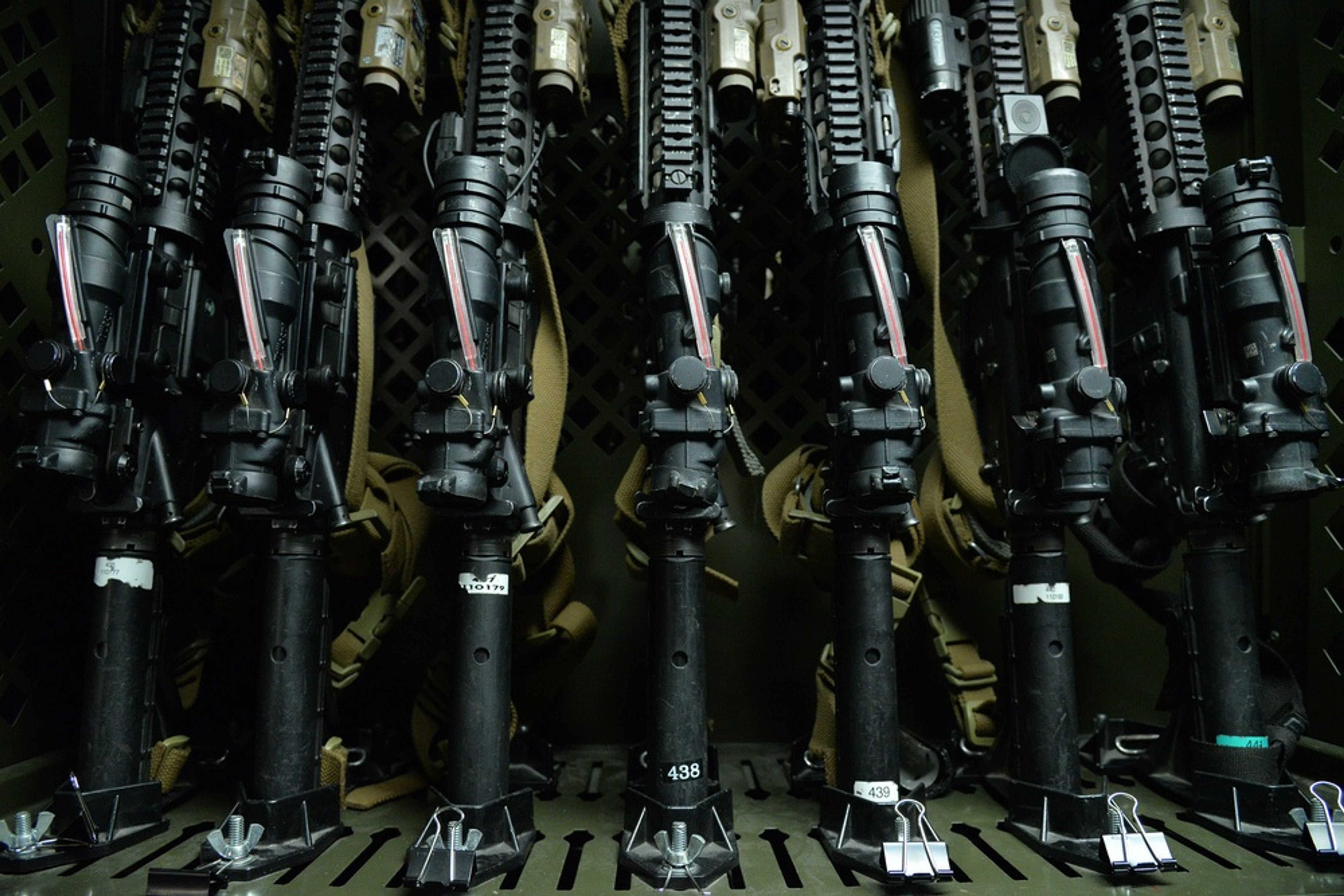Gun Rights Groups Challenge California's New Firearm and Ammunition Tax in Court
Gun rights groups filed a lawsuit challenging California's new 11% tax on firearm and ammunition sales, claiming it violates the Second Amendment.

MALMSTROM AIR FORCE BASE, MONTANA, UNITED STATES 06.14.2017 Photo by Airman 1st Class Daniel Brosam 341st Missile Wing
Gun rights organizations, including the Firearms Policy Coalition and the National Rifle Association, filed a lawsuit on Tuesday challenging a newly enacted California law that imposes an 11% excise tax on firearms, firearm parts, and ammunition sales. The complaint, lodged in San Diego County Superior Court, argues that the tax violates the Second Amendment by unfairly targeting gun owners. The law, known as Assembly Bill 28, aims to generate $159 million annually to fund state programs for gun violence prevention and gang intervention. The California Department of Tax and Fee Administration, the defendant in the case, declined to comment on the pending litigation.
The lawsuit, backed by plaintiffs such as the National Rifle Association and the California Rifle & Pistol Association, contends that singling out gun owners with a special tax infringes upon constitutional rights, citing previous U.S. Supreme Court rulings. Brandon Combs, president of the Firearms Policy Coalition, criticized the tax as discriminatory, likening it to "a modern Jim Crow law" against gun owners despised by political leaders like Governor Gavin Newsom. Randy Kozuch of the NRA Institute for Legislative Action described the tax as a direct assault on Californians' Second Amendment rights and accused the state of attempting to undermine constitutional protections.
Gear Spotlight: Relevant to This Story


Daniel Villaseñor, spokesman for Governor Newsom, defended the tax as a necessary measure to fund proven gun violence prevention efforts, emphasizing California's commitment to gun safety. The lawsuit also represents two licensed gun owners, Danielle Jaymes and Joshua Gerken, who argue that the increased cost from the tax has affected their ability to purchase firearms and ammunition. Jaymes, planning to buy a Sig Sauer P365 XMacro pistol, delayed her purchase due to the added expense, while Gerken, an occasional firearms instructor, expressed concerns about scaling back his ammunition purchases because of the tax burden.
In related legal developments, the U.S. Supreme Court recently declined to hear challenges to an Illinois state law banning rapid-fire assault weapons, a decision that may influence ongoing Second Amendment disputes in California, including a challenge to the state's ban on assault weapons currently under review in the U.S. 9th Circuit Court of Appeals in San Francisco.













